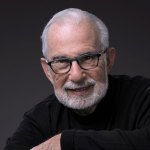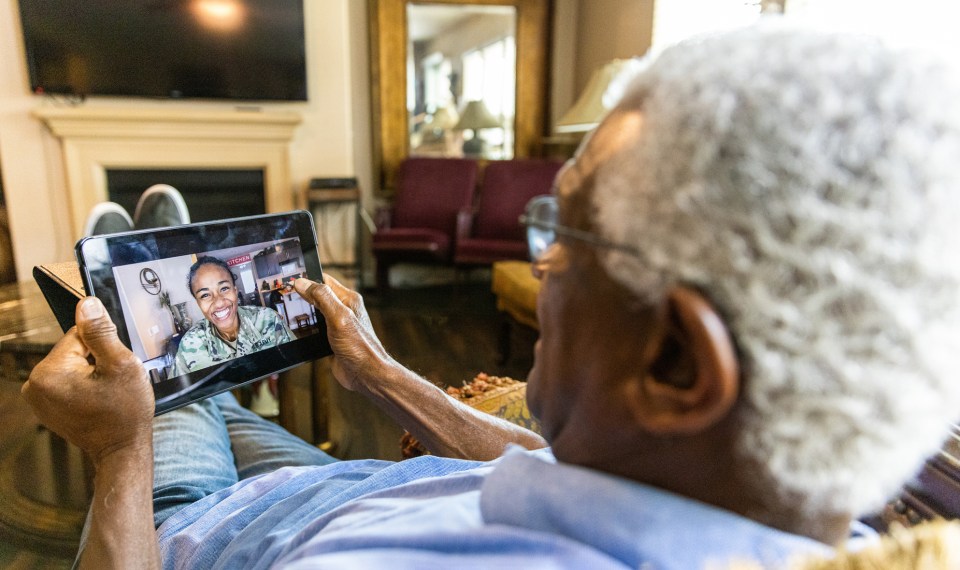Ed has been living alone for five years since his wife died. First, he moved to a smaller house and increased the number of days that his housekeeper came. Initially, this all seemed to go smoothly, but on his 85th birthday his children noticed that Dad was more forgetful. Then one night he gave a ride to one of his daughters on his way home and all the alarm bells went off. It was a shock. How was he getting around safely, or better yet, avoiding traffic tickets? He frequently crossed over the center line and didn’t seem to notice cars turning in front of him.
But there was a bigger problem. Who was going to talk to Dad and suggest that he no longer drive? What would they do if he said no? Driving was Dad’s lifeline. He was the last of his friends who still drove. How would he eat out with his friends, go to the store, see an occasional movie? And, for the children, who was going to drive Dad to all of his appointments, the grocery store, and become the appointed chauffeur? Maybe it would be easier to just let him drive?
Driving and Aging
The National Highway Traffic Safety Administration reported that the number of drivers over the age of 65 is rapidly increasing. Around this age our driving skills deteriorate, and our risk of accidents increases. By age 75, it dramatically increases due to:
- Dementia and loss of cognitive abilities
- Poor judgment – particularly in making left hand turns
- Decreased reaction time in responding to rapidly changing situations
- Visual and hearing losses that decrease awareness of their environment
As a result, senior citizens account for a disproportionate number of fatal crashes, particularly when you factor in the reduced number of miles they drive.
Who is Safe to Drive?
We all wish that there was an easy, clear-cut test to determine who is safe to continue to drive. It would remove a tremendous burden from physicians and families.
We have always considered the On-Road Driving Test (ORDT) as the gold standard for driving ability, but in some studies, as many as 76% of those with mild dementia could pass an ORDT, while other studies revealed that many elderly people who considered themselves safe drivers failed the ORDT. It frequently gets down to a caregiver or family member’s personal assessment of marginal or unsafe driving in making the determination. Some key features are evaluating:
- Increased problems on the Clinical Dementia Scale—a rating of memory, judgment, orientation, community affairs, home activities and personal care
- Caregiver rating of the driver’s abilities
- History of citations or traffic accidents
- Reduced driving mileage due to decreased abilities
- Self reporting of avoiding certain driving situations, such as rain, nighttime or rush hour
Driver Resistance
No one said this would be easy. Older drivers think of themselves as safe drivers. I am always amazed at my friends and colleagues who claim their reaction times are still as good as they were 20 years ago. I offer to test them at our rehabilitation hospital, but they all decline.
Parents may give the least credibility to their children’s concerns, for parents are still parents and reluctant to accept any role reversal. Children are faced with going against their parents’ wishes and being the “bad guy.” For the parent, it may feel like the last link to independence and the ability to make decisions for themselves is being wrenched away.
Have a Plan and Start Early
Depending on the family, convincing a parent to stop driving can either be easy or very difficult. Either way it helps to have a plan. We freely discuss retirement planning, financial planning, funeral and burial wishes, and medical directives, but not driving. The earlier you sit down and discuss the consequences of aging on driving, the better. Sit down with your parents or loved one and have a plan of action. Will you start with self-imposed limits? At what point will they agree to stop driving? We have these discussions on whether to place a person on a respirator or perform medical heroics, but we almost never discuss driving.
Here are some helpful tips that may work for you and your family:
- Have frank and open discussions early when the person can still make rational decisions. Frame the discussion as you would discuss any other medical and health issues.
- Plan early for how you will meet the needs of the person when they cannot drive.
- Develop a network to help and make regular appointments to take your loved one out. Recruit friends, neighbors and family, and offer to reimburse them.
- Check out community transportation resources and services like Uber and Lyft. Paying for transportation can be far cheaper than insurance and car ownership.
When Reason Fails
This is the moment we dread. Reason has failed and Dad won’t relinquish the keys. It’s time to recruit help. At times, fellow seniors who have stopped driving can reason with Dad. Call his doctor and tell her the problem and that you need her help when you come in for a visit. It helps to gather some objective data. Take Dad for a vision and hearing exam and tell the doctor ahead of time that you are concerned about his driving abilities. Some states have mandatory reporting responsibilities for healthcare professionals, while others leave it to their discretion. Be sure to check out the laws in your state.
When everything else fails, you may have to take away the keys. Sometimes you just have to take responsibility and live with the consequences. You can contact your local law enforcement agencies and report your family member. If you are concerned about anonymity, you can choose a friend, relative or doctor to file the report.
It may help to let the person keep their driver’s license. It has been a form of identity since age 16, and it can be a major blow to have it taken away. Some people recommend leaving the car in the driveway for a while, so your loved one has a sense that the car is there for an emergency.
These are tough choices, but they are choices that save lives. The earlier you start to plan, the easier it will be.
The content of this site is for informational purposes only and should not be taken as professional medical advice. Always seek the advice of your physician or other qualified healthcare provider with any questions you may have regarding any medical conditions or treatments.




